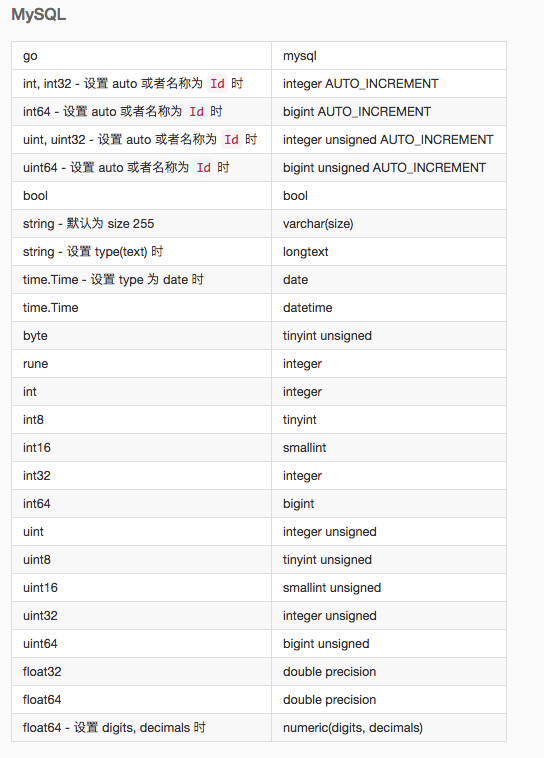
使用 GORM 时会遇到 MySQL 与 Go 数据类型不对应的情况:
- timestamp 类型在 GORM 中支持较好,但是想在 Go 中直接操作 time.Time 类型
- 在 MySQL 中直接存储 string,但是希望在 Go 中直接使用 struct/slice
可以利用 GORM 提供的接口实现序列化、反序列化时的转换:
// from MySQL to Go
type Scanner interface {
Scan(src any) error
}
// from Go to MySQL
type Valuer interface {
Value() (Value, error)
}
示例
import (
"database/sql/driver"
"fmt"
"strings"
"time"
)
// 想用","分割的方式在数据库某字段中存储多个字符串值(值中无','符号)
type Strs []string
func (p *Strs) Scan(val interface{}) error {
switch v := val.(type) {
case []uint8:
*p = strings.Split(string(v), ",")
default:
return fmt.Errorf("can not parse %T %v to string slice", val, val)
}
return nil
}
func (p Strs) Value() (driver.Value, error) {
return strings.Join(p, ","), nil
}
// 想在 MySQL 中以 int64 的方式存储毫秒级时间戳,在 Go 中以 time.Time 类型使用
type Time struct {
time.Time
}
func (p *Time) Scan(val interface{}) error {
switch v := val.(type) {
case int64:
p.Time = time.Unix(v/1000, v*1000*1000)
default:
return fmt.Errorf("can not parse %T %v to time", val, val)
}
return nil
}
func (p Time) Value() (driver.Value, error) {
if p == nil {
return int64(0), nil
} else if p.IsZero() {
return int64(0), nil
}
return p.UnixMilli(), nil
}
type MySQLEntity struct {
Strings Strs `gorm:"type:varchar(longtext);not null"`
CreateTime Time `gorm:"autoCreateTime:milli;not null"`
}
- 如果恰好符合基本类型,如 slice 等,可以用重定义类型的方式解决
- 如果是符合某种结构体,则以 embed 方式实现更好
- 上面
Strs的实现方案对原本只有一个字符串的情况有较好的兼容,可以在升级为多个字符串存储时平滑过渡